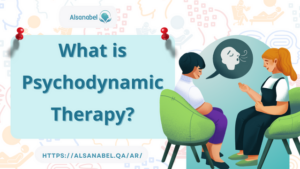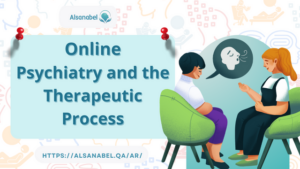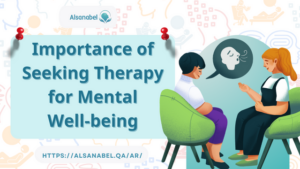Understanding the Basics of Psychodynamic Therapy 2024
- Category best online psychiatry
In your journey towards better mental health, it is important to understand the basics of psychodynamic therapy. This form of therapy focuses on uncovering unconscious processes and exploring past experiences to promote insight and personal growth. By gaining insight into your unconscious thoughts and emotions, you can work through unresolved conflicts and develop healthier coping mechanisms.
Online psychiatry services have made this therapy more accessible and convenient, allowing individuals to receive the help they need from the comfort of their own homes. This article will explore the principles and process of this therapy, and how incorporating online services can enhance accessibility and outcomes.
Importance of mental health
Seeking appropriate therapy is crucial for maintaining good mental health. It allows individuals to address and overcome challenges, develop coping strategies, and improve overall well-being. Remember, taking care of your mental health is just as important as taking care of your physical health.
What is Psychodynamic Therapy?
Psychodynamic therapy is a therapeutic approach that focuses on uncovering unconscious processes and exploring past experiences. It aims to help individuals gain insight and resolve unresolved conflicts from their childhood that affect their present behaviors and beliefs. The therapy emphasizes the importance of the therapeutic relationship in facilitating personal growth and insight.

Unconscious processes and exploring past experiences
In psychodynamic therapy, the focus is on delving into the unconscious mind to uncover hidden thoughts, emotions, and memories. Through exploring past experiences, individuals can gain insight into how these unresolved issues affect their present behaviors and beliefs. This process allows for a deeper understanding of oneself and paves the way for healing and personal growth.
The role of the therapeutic relationship
The therapeutic relationship plays a crucial role in the effectiveness of psychotherapy. Some key aspects of the therapeutic relationship include:
- Trust and Confidentiality: A strong therapeutic relationship is built on trust and confidentiality. Clients need to feel safe and comfortable sharing their thoughts, emotions, and experiences with the therapist.
- Empathy and Understanding: Therapists should demonstrate empathy and understanding towards their clients’ experiences and emotions. This validation helps clients feel heard and accepted.
- Non-judgmental Attitude: Therapists should maintain a non-judgmental attitude to create a supportive environment where clients can openly express themselves without fear of criticism.
- Collaboration: The therapeutic relationship involves collaboration between the therapist and client. Clients are active participants in their healing process, and therapists work together with them to set treatment goals and explore solutions.
- Boundaries and Structure: Establishing clear boundaries and maintaining a structured framework for therapy sessions help create a safe and predictable environment for clients.
- Transference and Countertransference: The therapeutic relationship can bring up transference (unconscious feelings towards the therapist) and countertransference (therapist’s feelings towards the client), which can provide valuable insights into underlying issues.
- Emotional Support: Therapists provide emotional support to clients as they navigate challenging thoughts and emotions. This support can help clients feel understood and encouraged in their journey towards healing.
Overall, the therapeutic relationship sets the foundation for effective therapy and can significantly impact the outcomes of treatment. Building a positive and trusting relationship with a therapist can help clients feel supported, understood, and empowered to address their mental health concerns.
The Process of Psychodynamic Therapy
During the process of psychodynamic therapy, you will engage in an initial assessment and formulation, uncover unconscious processes, work through and integrate new insights, and develop healthier coping mechanisms.
Initial Assessment and Formulation
During the initial assessment and formulation stage of this therapy, your therapist while the psychiatrist virtual visit will focus on building a strong therapeutic relationship with you and understanding your history and current concerns. They may use techniques such as free association and dream analysis to gain insight into your unconscious thoughts and emotions.
This process helps your therapist identify unresolved conflicts and patterns from your childhood that may be influencing your present behaviors and beliefs. By exploring and interpreting this unconscious material, you can gain a deeper understanding of yourself and begin the process of healing and personal growth.
Building a strong therapeutic relationship
Building a strong therapeutic relationship is essential in this therapy. It provides a safe and non-judgmental space wherein the client can freely express their thoughts and emotions. Understanding the client’s history and current concerns allows the therapist to gain a comprehensive understanding of their unique experiences and challenges, enabling personalized treatment that addresses their specific needs. This collaborative approach fosters trust, empathy, and effective communication, laying the foundation for personal growth and healing. The therapeutic relationship becomes a vital support system throughout the therapy journey.
Uncovering Unconscious Processes
In this therapy, the therapist helps you uncover unconscious thoughts and emotions. By exploring unresolved conflicts and childhood patterns, you gain insight into how they influence your present behaviors and beliefs. Online Psychiatry guides the exploration and interpretation of unconscious material to promote personal growth.
Gain insight into their unconscious thoughts and emotions
In psychodynamic therapy, the therapist guides the exploration and interpretation of unconscious thoughts and emotions, helping you gain insight into unresolved conflicts and patterns from childhood, which influence your present behaviors and beliefs. This process of uncovering the unconscious allows for a deeper understanding of oneself and promotes personal growth.
Unearthing unresolved conflicts and patterns from childhood
During the therapy, the therapist helps you uncover unresolved conflicts and patterns from childhood that shape your present behaviors and beliefs. This process allows for greater self-awareness and the opportunity for growth and change.
Therapist-guided exploration
In psychodynamic therapy, the therapist guides you in exploring and interpreting unconscious material. They help you understand the hidden meaning behind thoughts, feelings, and behaviors, leading to greater self-awareness and personal growth.
Working Through and Integration
Working through and integration involve actively addressing unresolved conflicts and developing healthier coping mechanisms. It is important to apply new insights and changes from therapy into everyday life, fostering personal growth and transformation.
Work through unresolved conflicts
Psychodynamic therapy provides a safe and supportive space for individuals to explore underlying issues and unresolved conflicts. Through therapist-guided exploration and interpretation, individuals can gain insight into their thoughts and emotions. This process allows for the development of healthier coping mechanisms and the ability to work through and resolve longstanding conflicts. By addressing these unresolved issues, individuals can experience personal growth, improved mental well-being, and a greater sense of self-awareness.
The importance of integrating new insights
As you work through unresolved conflicts and develop healthier coping mechanisms in psychodynamic sessions, it is essential to integrate these newfound insights and changes into your everyday life. This process allows for sustained personal growth and improved mental well-being.
Online Psychiatry and the Therapeutic Process
Online psychiatry services offer several advantages in delivering this therapy. They increase accessibility and convenience, allowing individuals to overcome barriers to in-person therapy. With the help of technology, individuals can engage in therapy sessions from the comfort of their own homes. Additionally, online psychiatry services offer a wide range of specialists, ensuring that individuals can connect with the best online psychiatry professionals, regardless of geographical limitations.

Advantages of online psychiatry in delivering psychodynamic treatment
- Convenience: It allows individuals to access psychodynamic therapy from the comfort of their own homes, saving time and eliminating the need to travel to appointments.
- Accessibility: People in remote areas or with limited access to mental health services can benefit from online therapy, bridging the gap in mental health care.
- Increased Comfort: Being in a familiar environment can help some individuals feel more comfortable and open during therapy sessions, potentially leading to more effective treatment outcomes.
- Flexible Scheduling: Online therapy offers more flexibility in scheduling appointments, making it easier for individuals to find time for therapy sessions in their busy schedules.
- Cost-Effectiveness: Online therapy may be more affordable for some individuals, as it eliminates the costs associated with commuting to in-person appointments.
- Continuity of Care: Individuals who require ongoing psychodynamic session can maintain continuity of care even if they relocate or travel, ensuring consistent support.
- Anonymity: Online therapy can provide a sense of anonymity for individuals who may feel hesitant about seeking therapy in person, encouraging more people to access mental health support.
- Use of Technology: Online platforms often offer tools for secure messaging, video calls, and document sharing, enhancing communication and collaboration between the therapist and the client.
By leveraging online psychiatry for delivering psychodynamic therapy, individuals can benefit from these advantages while receiving the support and insight needed for their mental health and well-being.
Therapeutic Relationship in Virtual Settings
In virtual settings, the therapeutic relationship can be established and maintained through video conferencing platforms. Therapists can use technology to create a supportive and safe environment for clients, allowing for effective communication and connection.
In online psychiatry services, the therapeutic alliance can be established and maintained through clear communication, empathy, active listening, and creating a safe and confidential virtual space. Regular check-ins and maintaining a consistent schedule with the client are also crucial in nurturing the therapeutic relationship.
Psychiatrist Virtual Visits and Psychodynamic treatment
When incorporating online psychiatry services into psychodynamic therapy, virtual visits with a psychiatrist can enhance collaboration between therapists, psychiatrists, and clients. These visits provide comprehensive care and coordination for individuals seeking psychodynamic therapy. The accessibility to specialists offered by online psychiatry can connect individuals with the best online psychiatry specialists, regardless of geographical limitations. This improves access to specialized therapists or psychiatrists who offer psychodynamic therapy, further enhancing the therapeutic process.
The role of virtual visits
Psychiatrist virtual visit play a crucial role in providing comprehensive care and coordination in psychodynamic therapy. They allow therapists, psychiatrists, and clients to collaborate closely, share information, and develop personalized treatment plans. With virtual visits, all parties can work together to ensure coordinated and holistic care. Online sessions can facilitate collaboration by allowing therapists, psychiatrists, and clients to easily communicate and share information. Through secure video conferencing and messaging platforms, all parties can work together to develop treatment plans and ensure coordinated care.
Accessibility to Specialists:
Incorporating online therapy into psychodynamic therapy provides greater accessibility to specialized therapists and psychiatrists. Regardless of geographical limitations, individuals can connect with the best online psychiatry specialists for their specific needs. This ensures comprehensive care and coordination in their treatment journey.
Online psychiatry breaks down geographical barriers, allowing individuals to access the expertise of the best online psychiatry specialists regardless of their location. This ensures that individuals receive the highest quality of care for their specific needs.
Access to specialized therapists
Online psychiatry provides a unique opportunity for individuals seeking psychodynamic therapy to access specialized therapists or psychiatrists regardless of their geographical location. Through virtual platforms, individuals can easily connect with experts in psychodynamic therapy, ensuring they receive the highest quality of care for their specific needs. This helps overcome barriers such as limited availability of specialized therapists in certain areas or long waiting lists for in-person appointments. With online psychiatry services, individuals can access the expertise they need, allowing them to embark on a journey of self-discovery and personal growth.
Importance of Seeking Therapy for Mental Well-being
Seeking therapy, such as psychodynamic therapy, is crucial for your mental well-being. It provides the opportunity to gain insight, resolve conflicts, and develop healthier coping mechanisms for a better quality of life. Don’t hesitate to prioritize your mental health.

- Professional Support: Therapists are trained to provide guidance, support, and tools to help individuals navigate through their mental health challenges. They offer a safe space for individuals to express their thoughts and emotions without judgment.
- Personal Growth: Therapy can help individuals gain a deeper understanding of themselves, their behaviors, and their thought patterns. This self-awareness can lead to personal growth, improved relationships, and a stronger sense of self.
- Emotional Regulation: Therapy equips individuals with coping strategies and skills to manage and regulate their emotions effectively. This can help in dealing with stress, anxiety, depression, and other mental health issues.
- Problem-Solving: Therapists can assist individuals in identifying and addressing problematic behaviors or thought patterns. By exploring and understanding the root causes of these issues, individuals can work towards developing healthier coping mechanisms.
- Improved Communication: Therapy can enhance communication skills and help individuals express themselves more effectively, leading to healthier relationships and interactions with others.
- Validation and Support: Therapists offer validation and support, helping individuals feel heard and understood. This can boost self-esteem, reduce feelings of isolation, and provide a sense of comfort.
- Preventative Care: Seeking therapy proactively can help individuals address concerns before they escalate into more serious mental health issues. It can serve as a preventative measure to maintain overall well-being.
- Stress Management: Therapy can provide tools and techniques to manage stress and break negative thought patterns, promoting mental resilience and overall well-being.
Benefits of incorporating online psychiatry services into psychodynamic therapy
By incorporating online psychiatry services into psychodynamic treatment, individuals can benefit from increased accessibility and convenience, allowing them to receive the therapy they need regardless of geographical limitations. This can lead to improved outcomes and enhanced mental well-being.
Online psychiatry also allows for collaboration between therapists, psychiatrists, and clients, ensuring comprehensive care and coordination. With access to the best online psychiatry specialists, individuals can receive specialized psychodynamic therapy, leading to more effective and personalized treatment. Overall, the incorporation of online psychiatry services into psychodynamic therapy can greatly enhance accessibility and improve outcomes for individuals seeking therapy.









